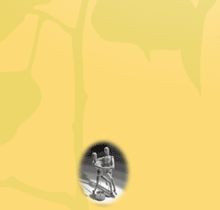 |
 |
PrologueThe extraordinary is always prowling around at the fringes of our ordinary days, Astoria walked through the quiet house fighting back her panic. Marcus was late and he was never late. He was a man of order, a man of structure and discipline. He was in a second career now, but his naval training never betrayed him. She called his mobile phone for the tenth time. She didn’t leave another message. On her way down the hall, she stopped in the doorway of Michal’s room. His cheeks were bright with sleep, his breath slow and steady as he dreamed under the Spider Man sheets. The new book she’d given him for his seventh birthday lay propped open on top of his blankets. She picked it up and found a place for it in his crowded bookcase. She always gave the children at least one book on every special occasion. Books were precious to her. They represented the education she hadn’t had, the adventures she’d circumvented, and career she’d never been brave enough to pursue. She was determined it would be different for her children. With Marcus it all seemed possible. Gabrielle was in her room too, splayed across a bed strewn with textbooks, pens of every color, and magazines. Headphones blasted hard rock into her head while her fingers danced across her phone. Texting. That was something Astoria could not fathom. What was wrong with having an actual conversation? The kids said she was old-fashioned, but she left technology and the bewilderments of the world to Marcus and the children. Astoria went back to the family room, wrapped herself in a quilt, and settled into Marcus’s recliner, shivering even though it was warm in the room. She rocked, clutching a novel she didn’t open. She hadn’t drawn the drapes when the sun went down so she would be able to see him when he came home. She loved to watch the square of his shoulders, the trained confidence in his stride. It made her feel safe and lucky. But now, it wasn’t Marcus coming up the walk. It was two strangers, men with heads down. They mounted the front steps with reluctance. One reached to press the doorbell. The other removed his cap and smoothed his hair with a nervous hand. It was a great distance to cross the living room and pull open the front door. She stared into the face of the stranger wearing the familiar Shanghai International uniform, the cruise line uniform that matched Marcus’s. A Seattle police badge glinted on the chest of the other. Their voices buzzed in her ears. She swallowed hard and then the floor flew up to catch her crumbling form. ---- 4:30 pm Lily walked across the wide, uneven planks of Pier 66, cursing her shoes. She’d wanted to make sure she didn’t disappear behind the podium, but the Ferragamos were killing her feet, as lovely as they were. On that late summer day, on the cusp of autumn, the air was so full of salt and sun it laid dense on the skin. The sky burned blue overhead. It was a day to justify all the gray days endured and left her feeling smug for living in Seattle. A crowd had gathered on the pier, a mix of supporters, activists, reporters, and curious tourists clutching maps and ice cream cones. She smoothed her hands down her sleeveless navy shift, and pulled a compact from her purse. She checked her earrings, silver dangles that had been her mother’s, and ran her fingers through the unruly chop of thick gray hair. She snapped the compact shut and pulled out a small stack of note cards, ticking off the main points of her speech. This speech was important. She’d scattered key sound bites throughout, highlighted in yellow so she couldn’t miss them, to make sure her words could be easily edited for the news. The long fight for the future of the waterfront was almost won. The decrepit viaduct, the subject of decades of debate and one significant earthquake away from collapse, was finally to be torn down. A broad underground tunnel would sweep traffic under the city. The waterfront would be transformed, opening up the buildings along Western Avenue to a glorious view of Puget Sound and a lush pedestrian park. Only one obstacle remained: the foreign cruise ships. Lily threaded her way through a satisfyingly large crowd, past the news media wrestling with equipment and doing sound checks, looking for her new assistant, Forest. A fervent young man, he’d been a dedicated volunteer in her environmental organization over the last several months. He’d lobbied hard for more responsibility and a paid position. With the monumental workload she shouldered as executive director, she’d decided to let him coordinate this event, a task he’d been particularly keen to take on. She took the five steps up to the podium, eyes on her feet so her heels wouldn’t catch on the metal grate. The Shanghai International vessel, one of the crown jewels in the Chinese cruise line, was sliding in the last hundred yards to the pier. Curious Chinese passengers, eager for their first close-up view of Seattle, lined the ship’s rails. She felt a little like David facing Goliath, with a microphone for her sword. From her station on the podium, she searched the crowd once more for her assistant. He was supposed to be shepherding the TV crews, making sure he got the camera folks what they needed and that the reporters connected with their interviews. She was out of time. It all had to happen now, before the passengers disembarked. They were a necessary part of this little drama too. Then she spotted him. Her assistant was on the gangway that arched overhead between the ship and the terminal. His arms were propelled in a frantic wave, his hair wild, and a manic grin gripped his face. Then he earth cracked open and she fell in. ---- 4:30 p.m. Dwight had had an appointment at the Port of Seattle office on Pier 69 that afternoon. He’d had the unpleasant task of presenting some troubling findings in his new water quality study. It would not be welcome news for the Port, nor for the EnviroStar ratings they’d been crowing about. But the representative from the Department of Ecology had cancelled at the last minute. That was just as well. Bad news was better digested on a Monday. So instead of being stuck in a cramped, windowless office showing PowerPoint slides in the dark, Dwight was now two and a half hours east of the city and 3000 feet above sea level, pacing out the perimeter of what would one day be an off-the-grid settlement in the Cascade Mountains. When his vision was fully realized, he would have the power and resources to sustain an entirely independent village of a dozen souls. Today though, it was populated only by pines, deer, a few rabbits, and him. He pulled his mobile phone out of his jacket pocket wondering how many voicemail messages were mounting up while he was out of service range, and whether or not Janus had called. ---- 4:30 p.m. When Cassandra pressed the ignition button of her Prius, the radio automatically powered on too, filling the car with the blare of the emergency broadcast system alert. She didn’t understand yet, but it was the sound of her world detonating. ---- 4:00 p.m. “Get back, Daddy! Back!” Jacob tackled Theo’s tall, lanky frame with all the urgent weight his 4-year-old body could muster, certain that the cruise ship bearing down on them would burst through the wall of windows in the visitor’s area of the cruise line terminal at Pier 66. “Whoa, whoa! Take it easy, buddy. Look, the captain knows what he’s doing.” Theo swung Jacob up onto his own broad shoulders and pointed, his long finger punctuating the length of his arm. “Do you see him up there, with his white hat? Look, he’s waving at us!” Jacob chanced a peek between his fingers. After long days in surgery and many late nights at the hospital where he served as chief of reconstructive surgery, Theo had signed out at noon. Friday afternoons were set aside for Jacob. And the Seattle waterfront was Jacob’s favorite place—a chance to ride a ferry, chase the bold, overfed seagulls, and buy ice cream from one of the street vendors. But this was the first time Jacob had been so close when a cruise ship landed. Together they absorbed the magnificent white vessel, 12 decks high and nearly a thousand feet long. It was finishing its glide through the blue-gray chop of Elliott Bay. Gauzy gray islands mounded along the horizon and the blue sky stretched to eternity. Jacob wiggled then off his father’s shoulders and down into the secure nest of his arms. Nose to nose he grinned at Theo, brave now. Theo stared into the miniature mirror of himself: the high forehead and broad nose, the sculpted head crowned with a mat of ebony hair, although those were the piercing black eyes of Cassandra that stared back into his. Theo’s knees buckled with a sudden rush of love. “Maybe we should go find Mom now,” his son said into his shoulder. “Mom’s got a meeting. She’ll call us when she’s ready.” Theo glanced at his watch. Cassandra was late. But it was Friday afternoon. Traffic downtown was probably terrible, and the demonstration clogging the waterfront was only making matters worse. “Let’s go out on the deck and see what we can see.” They made their way across the observation room and onto the crowded outdoor deck, two stories above the pier. The commotion below boiled up to them. Picketers shouted slogans and carried hand-painted signs: “NO to cruise polluters,” and “Cruise ships go home.” Strident commands issued from megaphones as organizers attempted to rein in the chaos of protesters, tourists, and gawkers. “They’re mad,” said Jacob. “They don’t like the cruise ships.” “Maybe they’re scared of ‘em too.” As they watched, a robust, older woman in a plain navy dress and high heels took careful steps up to a temporary stage. She steadied herself at the podium. Just as she pulled the microphone to her mouth to speak, a spark flared on the docking ship. Everyone turned as a blinding flash electrified the sky. Then came a deep thud, and a violent seizure gripped the steel and stone of the terminal, knocking Theo’s feet from under him. As he fell into a tangle of bodies, a blast of smoke and flames belched out of the ship, hurling Theo through the glass wall on a furious wave of debris and wrenching Jacob from his arms.
|



